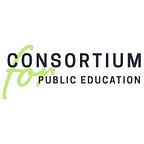7 Strategies to Strengthen Student Research
- Reinforce Key Skills Beforehand
It’s increasingly likely that students will engage with digital resources online rather than in a library or with an actual textbook. This means that students need to build the skills and meta-strategic knowledge to locate, navigate, and evaluate information on the internet. CommonsenseEd offers a digital citizenship curriculum for free, and Stanford University recently launched a program to teach students lateral reading online.
2. Harness the Power of ‘Need to Knows’
Throughout the project, you should refer often to the project driving question, but students will inevitably generate many more sub-questions on their journey to answering the DQ. When you kickoff your project, take time to compile your students’ questions, or the things that they ‘need to know.’ This could be a list in a shared document or on a whiteboard, or a collection of sticky notes on a wall. Sometimes, students may not realize how many questions they have, or what questions to ask; in such cases, I like to provide a lens for their thinking, e.g., my favorite: “If your presentation was tomorrow, what would you need to know?”
3. Build Stamina
Tackling big driving questions often means sustained, arduous research and iteration. If your students are new to project-based learning, start with smaller, or narrower DQ’s that can be explored in a few days or a week. Seeing tangible progress quickly will help reinforce the value of their work, increasing student agency in the process. In addition, a small test-drive can provide an opportunity for you to spot red flags early that might derail a larger project.
4. Develop the Questioning Disposition
Asking questions may not come naturally to many students. First, it’s not a skill that’s traditionally encouraged, and students may dread speaking up in front of their peers. Or they simply may not have the words to do so.
Whenever possible, I like to use questions as a form of praise for students:
“How did you do that?!”
“Can you teach me?”
“Where did that idea come from?!”
Asking these types of questions recognizes each student’s unique thinking and expertise, reinforces pride in their work, and encourages a culture of co-learning between teacher and student. Doing so also prompts students to practice meta-cognition as they reflect on and verbalize their thinking and creative process. And as a teacher, I’m modeling curiosity and excitement about my own learning.
5. Chunk the Process
Without an end in sight, students may lose focus. Set small, recurring deadlines — maybe a few days at a time — with the expectation that students compile and share answers to a subset of project questions. Celebrate what students have learned, and encourage them to consider what information they should pursue next.
6. Curate Their Journey
Even in college, most student writing is based on a curated list of texts and resources from their professors. Likewise, use your expertise and experience to create a collection of resources for your students to explore; you can still offer voice and choice in terms of how students choose to use those resources. If possible, consider multiple media (video, audio, text-reading) to support student engagement and accessibility.
7. Organize the Process with a Checklist
Depending on the kind of research that students are conducting, there may be many variables or steps to keep in mind. This is where a checklist comes in handy. If students are searching for information online, consider compiling a list of ‘look fors’ to help students differentiate between reliable sources and misinformation. Or if organization is a concern, break down the research process into a step-by-step guide for students to follow. Checklists, by providing structure and clarity, raise quality expectations for student work.
Written by Aaron Altemus, Program Director at the Consortium for Public Education. Aaron, a former classroom teacher, has had the privilege of training hundreds of educators in project-based learning, from Western Pennsylvania all the way to New England. He is also a certified trainer and facilitator of human-centered design.
For our latest PBL blog post, please visit our website here.
